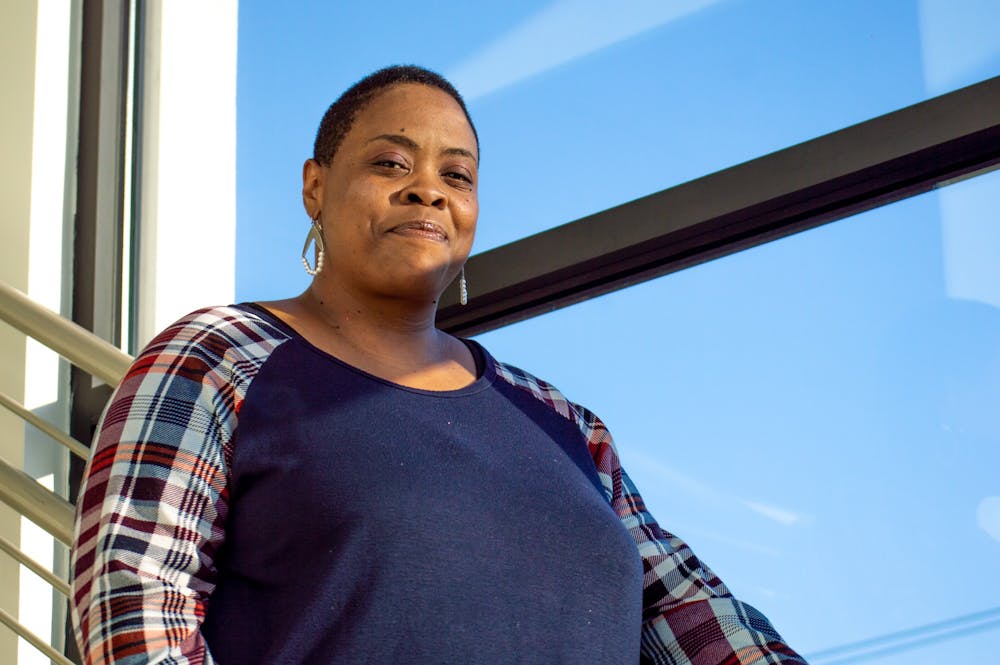“With my lived experience, how could I not like this job?" Welch said. "This is who I am."
In her role at the IFC, Welch connects unhoused individuals with services such as permanent supportive housing, food security programs, community kitchens, emergency financial assistance and community navigation for unhoused individuals.
Local organizations
“We exist because there is not sufficient housing that everyone can afford in our community,” IFC CEO and President Jackie Jenks said.
IFC works with CEF and the Orange County Street Outreach, Harm Reduction and Deflection program, which the Orange County Partnership manages to End Homelessness.
The OCPEH links individuals to shelter programs provided by IFC.
“For folks who are experiencing homelessness, it is just harder and harder to exit homelessness and to find a place that is affordable for folks who are low income, no income or fixed income,” Jenks said.
Housing choice vouchers, like the one Welch recieved, are used by IFC to connect housing-insecure individuals with long-term housing situations. However, Jenks said many landlords refuse these vouchers as forms of payment.
“Although we have housing choice vouchers, which allow folks to get subsidies for existing housing and pay 30 percent of their income whatever that is, we don't have a lot of landlords that are taking vouchers,” Jenks said.
Because landlords are not always accepting of housing choice vouchers, Jenks said the IFC is beginning to secure affordable housing in Chapel Hill by working alongside landlords in their Permanent Supportive Housing program.
To get the day's news and headlines in your inbox each morning, sign up for our email newsletters.
Community organizations, like IFC and CEF, see a need for more housing for low-income individuals, especially those who earn 30 percent or lower of the Area Median Income.
Yvette Mathews, office and community organizer for CEF, said she thinks the lack of housing for low-income and housing-insecure people is a failure of local government.
“They’re not building for us," Mathews said. "That’s the thing that we really focus in on, because things are not being built for our population."
While inability to afford housing can contribute to housing insecurity, things like domestic violence, mental health issues, disability, tragedy and drug use can also play a role.
The OCPEH aims to both prevent and end homelessness by working alongside local government and community organization such as CEF and IFC.
"The partnership’s strength really lies in the power of our collaboration service providers, stakeholders, people with lived experience of homelessness in our community to really coordinate funding and develop community priorities," Rachel Waltz, Orange County homeless programs manager said.
OCPEH’s main on-the-ground homelessness outreach programs include their SOHRAD team and the Orange County Housing Helpline.
Individuals who are assessed by OCPEH have a multitude of different housing backgrounds through its Coordinated Entry program. The program allows individuals to be assessed for risk of homelessness and diverted to either homelessness prevention tools or housing services.
“Everyone’s situation is a little bit different. Someone may have experienced a house fire and maybe need a place to stay for a little while, and maybe some need security deposits to get back on their feet, filing insurance, that kind of thing,” Waltz said.
While OCPEH primarily connects people with emergency shelter or financial relief, Waltz said she sees a connection between the lack of affordable housing and growing numbers of people experiencing a housing crisis in the county.
“You can’t talk about homelessness without talking about the lack of affordable housing. And you can’t talk about affordable housing without recognizing that some of those households are getting displaced by 20 percent rental increases and will end up in our shelters and on the streets,” Waltz said.
More information about the programs the IFC offers can be found on its website.
Eliza Benbow contributed reporting for this story.
@wslivingston_ | @DTHCityState
city@dailytarheel.com | elevate@dailytarheel.com
Walker LivingstonWalker Livingston is the 2024 enterprise managing editor at The Daily Tar Heel. She has previously served as summer city & state editor and assistant city & state editor. Walker is a sophomore pursuing a double major in journalism and media and American studies, with a minor in data science.




